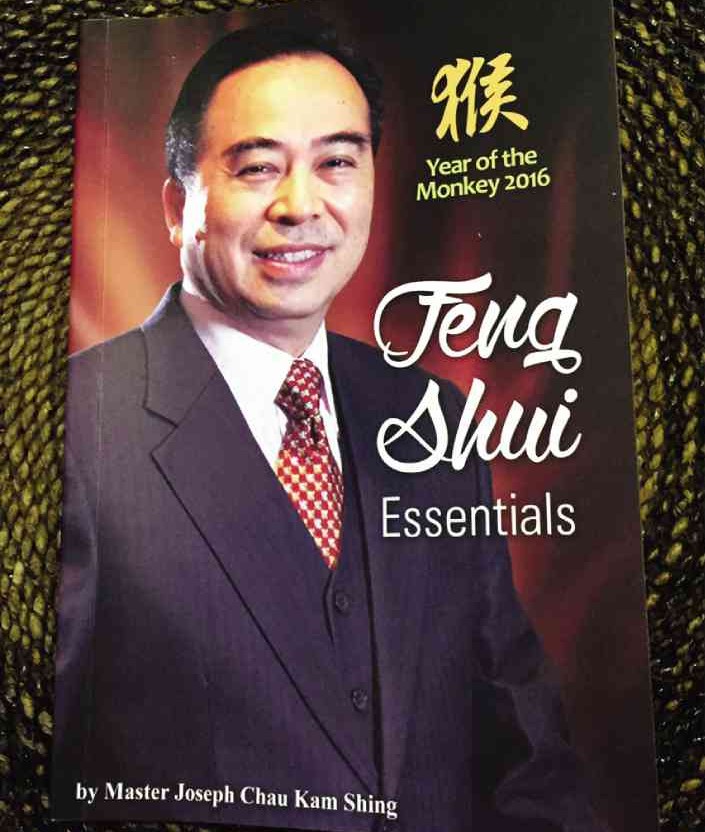Lucky food for better business this 2016
Finally, the holidays are over and we are back to regular programming and eating.
Or are we?
Just around the corner is another great celebration: Chinese New Year! Another excuse to feast our hearts out. This time, after celebrating the birth of our Lord Jesus Christ, for good chi and better luck—money, come! money, come!—this 2016.
While Chinese New Year is not until the 8th of February, there are some rituals that can be done to attract good luck this 2016, especially for businesses.
One of these rituals is Thanksgiving.
Like the Americans, the Chinese also have a tradition of giving thanks—not just for good harvest but also for peace, protection, harmony and safety in the past year. It is this expression of gratitude that segues to better luck in the coming year.
Whole suckling pig
Instead of the American thanksgiving tradition of serving turkey, though, feng shui master Joseph Chau, who was master of ceremonies and gave the blessing for Chinese New Year at the Mandarin Oriental for several years, has listed specific food items that should be offered.
First, make sure to have these three items: a whole suckling pig, a whole steamed chicken, and a whole roasted goose or duck. Note that for the chicken and goose/duck, these should be whole, with head, feet and intestines intact!
Secondly, offer five kinds of fruit. Master Chau recommends apples, pineapples, pomelo, oranges and bananas. But other fruits may be offered as well.
Finally, one must also offer three bowls of cooked rice. These must be served with three pairs of red chopsticks (note that the chopsticks must be red). Pair these with three cups of tea and three cups of Chinese rice wine.
Thanksgiving dates
There is no one general Thanksgiving day, though, unlike in the Western practice. According to Master Chau, there are also specific dates for Thanksgiving for good business luck.
For feng shui practitioners, following the harmony of nature, specific dates are followed, as calculated in their calendars and marked as the most auspicious dates.
Master Chau generously shares the dates:
For businesses, companies should hold a thanksgiving ceremony at the office, factory or workshop on Jan. 25, Monday (or Dec. 16 in the Lunar Calendar).
But it is not only the date that is important. Also note the auspicious time for your thanksgiving ceremony: between 9 a.m. and 1 p.m. or from 3 p.m. to 9 p.m.
There is a different date for those working in government or in the military: Feb. 1, between 3 p.m. and 6 p.m. Except for those who were born in the Year of the Rat, because Feb. 1 is an Ox “day,” i.e., in conflict with the Rat, therefore those who are ‘Rats’ must offer their thanksgiving on Jan. 31, between 9 a.m. and 11 a.m.
All other merchants and employees should offer thanksgiving on Feb. 2, between 5 a.m. and 9 p.m.
Except for those born in the Year of the Monkey, because Feb. 2 is a Tiger “day,” which clashes with the luck of the Monkeys.
If you are a ‘Monkey,’ celebrate thanksgiving instead on Feb. 1 either from 9 a.m. to 11 a.m. or from 5 p.m. to 7 p.m.
Buchi for backstabbers
Being a predominantly Catholic country, Master Chau says to make your offering to God.
His old friend, author Julie Yap Daza (who joked that she would collaborate with Master Chau on a new book, “Feng Shui for Mistresses”), explains that since the feng shui master has been consulting in Manila for 14 years, he knows very well how Filipinos think and makes recommendations bearing in mind Filipino culture. That presumably includes the Filipinos’ staunch Catholic/Christian faith.
Some devout Catholics argue against feng shui as being against the Church. But Yap Daza responds, “Feng shui in Chinese means wind and water. It’s about the elements of nature which we harmonize on earth. So instead of looking at feng shui as superstitious, I look at them as a charm to color your life.”
It is most colorful, of course, for the Chinese.
Master Chau shares that a food offering must also be made to the God of the Kitchen and Landlord (Toh Ti Kung): a glutinous rice ball with peanuts and white sesame inside.
The belief is that this offering will prevent them from badmouthing you in Heaven.
Although the reasoning is quite hilarious: it is because the glutinous rice will stick together the teeth of the gods, preventing them from speaking clearly or reporting details to the Jade Emperor in Heaven.
Maybe if you know someone who is badmouthing you, you can gift them with a bag of buchi.
Generosity
In the grand scheme of things, though, feng shui is also about karma. If you practice generosity and give gifts of kindness, love, charity, and all the beautiful values Christ exemplified, these will come back to you. So alongside the suckling pig and whole duck, offer in thanksgiving beautiful gifts from your heart as well. Your aura will become so beautiful that business this 2016 will undoubtedly be good!
Happy New Year!
More from the author at margauxlicious.com. Follow @margauxsalcedo on Instagram, Twitter, Facebook.
Master Joseph Chau flies to the Philippines from Hong Kong every three months. For appointments, contact Master Chau at +85290269781 or e-mail chausfengshui@hotmail.com. Feng Shui Essentials for the Year of the Monkey is available at National Bookstore.

